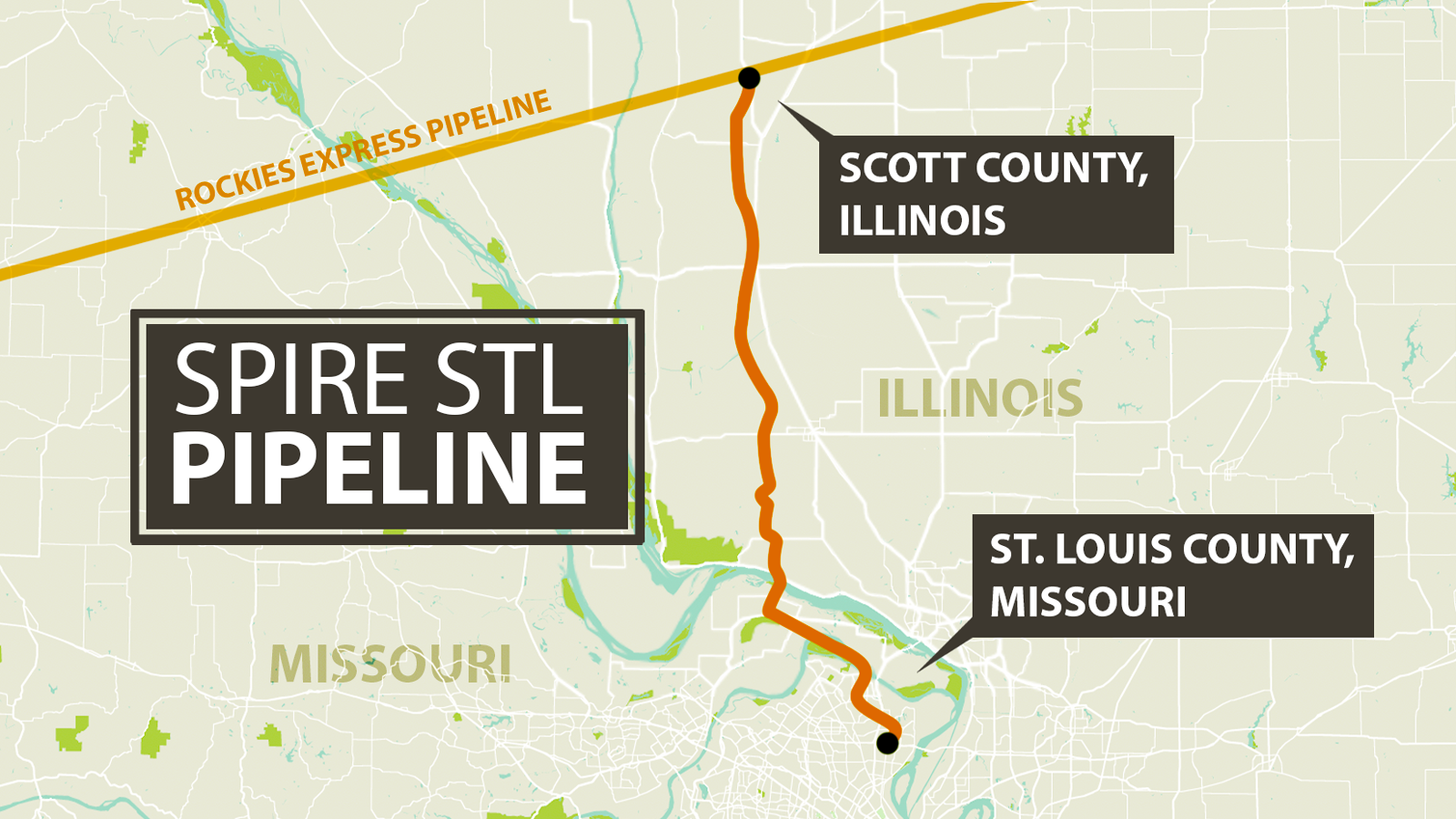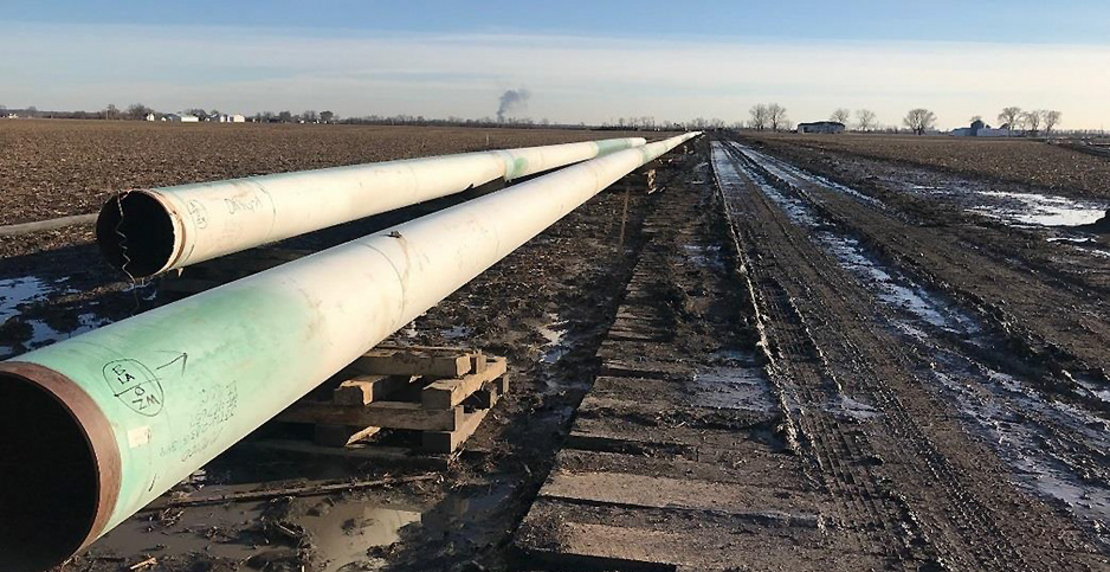A Missouri gas company figured out how to keep its illegal pipeline running
Dec 14, 2021
Thousands of Missourians received an alarming email from their utility company last month: Unless federal regulators allowed a new natural gas pipeline in the region to keep operating, as many as 400,000 St. Louis residents could be without heat this winter.
The message came from Spire Missouri Inc., a natural gas utility serving some 1.2 million customers in Missouri.
“The level of panic was something I had not seen,” said Dawn Chapman, a St. Louis resident and co-founder of Just Moms STL, a group that educates people about Superfund waste sites in the area.
Missouri Representative Cori Bush called on the Federal Energy Regulatory Commission, or FERC, to investigate the nature of Spire’s claims. “I am gravely concerned that Spire Inc. may be actively weaponizing the fears of our community members,” she wrote in a November 17 letter, “many of whom are low-income individuals, families with small children, and older adults — for their own personal gain and profit.”
Spire’s warning to its customers – and the resulting panic – is the latest in a long-running saga over the controversial 65-mile-long Spire STL pipeline.
In 2018, FERC granted Spire permission to build a new pipeline capable of carrying 400,000 dekatherms of natural gas everyday. The route would connect the Rockies Express Pipeline in southwest Illinois to the St. Louis area. Construction finished and the pipeline went online a year later.

But in 2020, the nonprofit Environmental Defense Fund, or EDF, filed a lawsuit against FERC for authorizing the project. It argued that FERC granted permission without the legally-required proof that a new pipeline was needed and beneficial for the region. There were already five natural gas pipelines serving the St. Louis area, some of which were carrying Spire’s natural gas.
The pipeline’s construction ultimately cost $287 million. Normally, pipelines must show market demand before construction. Evidence for market demand is usually shown through multiple contracts or agreements with utilities that are interested in utilizing the pipeline. But in the case of the STL project, their only contract was, and is, with their own affiliate, Spire Missouri.
“This is an unprecedented situation, because it’s not a typical relationship for a gas utility to have – one hand shaking the other, with an affiliate company that builds a pipeline that solely serves that gas utility,” Erin Murphy, a senior attorney for the Environmental Defense Fund, told Grist.
“If a pipeline is genuinely needed to serve a market, there’s going to be broader interest in signing up for capacity on the pipeline.”
The lawsuit also argued that FERC’s authorization of the pipeline depended on there being no negative consequences for landowners along its path. By law, Spire was required to restore land after construction and minimize disruption to the communities, which Murphy said, “has absolutely not happened.” EDF is representing several clients in court who have lost farmable land to the project.
The U.S. Court of Appeals ruled in favor of EDF in June 2021, and ordered Spire to close the pipeline. The company was granted a 90-day extension to keep operating, during which time they were supposed to come up with a backup plan.

Instead, Spire emailed their customers in early November about potential shutoffs. Several weeks later, on November 30, the company increased gas prices for all of its customers. Those in St. Louis saw their bills jump by approximately $14 per month. Spire attributes the increase to below-market natural gas rates in 2021, not the pipeline fight.
But environmental advocates and politicians are saying Spire is fear-mongering to gain support for its pipeline.
“They are scaring people into defending their now-illegal pipeline,” said Michael Berg, political director of the Sierra Club Missouri Chapter.
Chapman said there’s a lot of mistrust in the community now. “They [increased gas prices] on top of a level of panic that they already had created.”
The court had ordered the pipeline to shut down by December 13. But on December 3, FERC decided to grant a temporary extension on Spire’s operating permit to get through the winter months.
Jason Merrill, director of communications at Spire, told Grist that if the STL pipeline had been shut down this December, the company made a contingency plan to transport its gas via other pipelines, though equal to just one-fourth of the gas transported by STL every day. “There was some capacity that did exist in the market, but it does not come close to the 350,000 dekatherms per day that the Spire STL pipeline brings into the region,” he said.
Berg from the Sierra Club says that Spire could have easily had a contract with Enable MRT, another pipeline that services St. Louis, for half of the cost of the current one.
According to an email sent to utility customers by the president of Spire Missouri, Scott Carter, the company is now focused on securing a new, permanent operating certificate for the pipeline.
“This is part of a broad base campaign by the gas industry to [build] as much infrastructure as they can, as quickly as they can,” said Berg, “before the large-scale transition away from gas really takes off.”
This story was originally published by Grist with the headline A Missouri gas company figured out how to keep its illegal pipeline running on Dec 14, 2021.